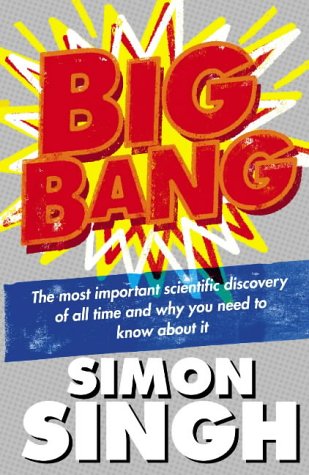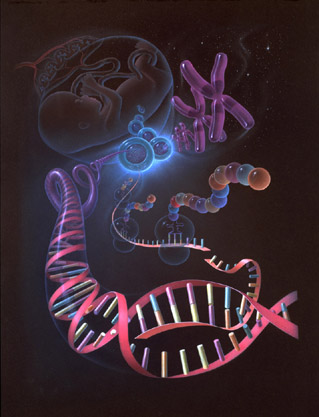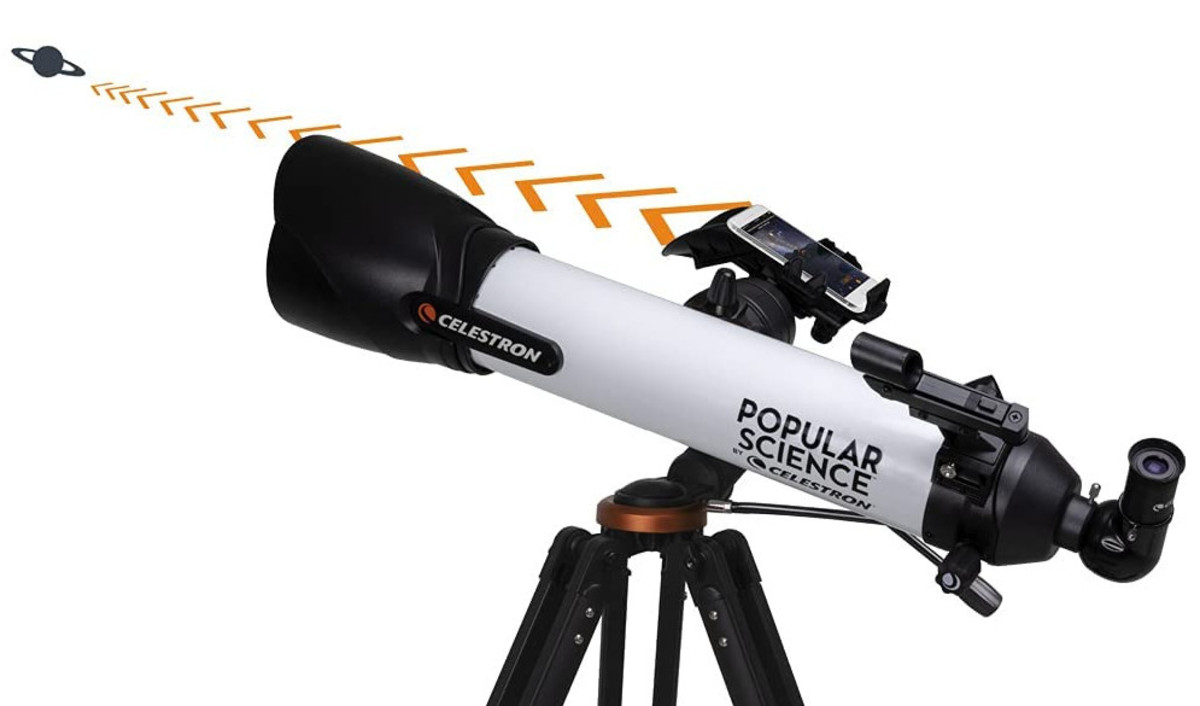Popular Science: an Introduction in 5 Books

A fun way of reading about often complicated concepts
If you’ve ever read any of my hubs you’ll know that I’m passionate about science and also disseminating science to a wider audience encompassing people from all walks of life. Science suffers from a lack of ability in putting its collective message “out there”, with many having an instinctive aversion to techy sounding phrases or even a dislike of the perceived arrogance of the field when stating conclusions. These five books will hopefully help to break down barriers between science and the general public, and I’d urge anybody with a passing interest in science, or who just wants to expand their horizons a bit, to get themselves to the library or a book store and read one or all of them.
I should probably make a disclaimer at this point and say that although I mention only three by name here, there are plenty of others out there. And although it is not a new art (Galileo wrote Dialogue Concerning the Two Chief World Systems in a “popular” style in 1632!), it has certainly begun to become more fashionable again, particularly by the looks of things in the UK. The five I have chosen are because they were the best at explaining a concept or field of science, they hold the reader’s attention and they are at times a joy to read. Admittedly, they can be a little heavy going at times (but you try to explain the Doppler Effect without being tricky!), but are the best I have found at explaining concepts outside of my field.
So anyway, in no particular order:

Big Bang
Big Bang: the most important scientific discovery of all time and why you need to know all about it by Simon Singh. Big Bang is a popular introduction to a very complex theory written in a concise and easy to understand way. This book somehow conveys its point thoroughly without completely baffling a layperson – I should know, I am one! Singh’s book starts with the Ancient Greek stargazers and concludes with Steven Hawking, covering everything in between in a huge amount of detail, but in a very easy to understand way. I began this book with very little knowledge of the subject matter, but closed it with a solid understanding of the theory (anyone but a scientist would say “established fact”) of the big bang, and the evidence for it. It also got me engrossed more in physics, cosmology and big bang theory in general, which has to be the ultimate sign that a book has done its job properly!
Ben Goldacre talks bad science and the MMR scandal on Charlie Brookers Newswipe
Bad Science
Bad Science by Ben Goldacre is written from the point of view of a medical doctor. Not only is it brilliantly written, on what are very emotive issues, but at times it is absolutely hilarious. It is obvious from his writing – and sometimes close to ranting – how passionately Goldacre cares about medicine and the misrepresentation of his profession in the media. Bad Science covers the whole gamete of scams and cover-ups in the medical field; from homeopathy to big pharma cover-ups; from the relatively harmless (but wholly wrong) advice of nutritionists like Gillian McKieth to the awful AIDS-denialist stance taken by the previous South African government.
Bad Science occasionally runs very close to the bone and will have upset many people. Goldacre was threatened with legal action by McKieth and other bodies picked on in the book and fought a protracted legal battle with Matthias Rath; the AIDs denying vitamin pills salesman with so much influence over Thabo Mbeki’s government. If you too wish to treat everything you hear with a healthy dose of scepticism when it comes to health advice, then this is a very witty way of learning more...

Lonesome George
Lonesome George: the life and loves of the world’s most famous tortoise by Henry Nicholls tells the story of the eponymous hero of the book and the history of conservation and the Galapagos Islands. This book is a fantastic introduction to conservation and the damage that our race has managed to inflict on the world’s biodiversity. Lonesome George also provides a useful insight to the Galapagos Islands and their history, the place which initially inspired Darwin’s dangerous idea and the wildlife he encountered when disembarking from the Beagle.
Lonesome George is the final Pinta tortoise on the planet and it is this remarkable animal around which the book is based. The attempt by conservationists to keep the line alive; encouraging George to mate with closely related species, as well as discussing even more radical ideas like cloning. Although slightly sad, the book is touching and shows how humans not only have the ability to destroy, but also to preserve our planet and the creature which share it with us.
Marcus Chown explains why you age more quickly on the top floor of a building
We Need to Talk About Kelvin
We Need to Talk About Kelvin: what every day things tells us about the universe by Marcus Chown. In this book Chown explains why everything around us points to fundamental truths about the universe. Simple things like the colour of our blood tells us that there must somewhere be a furnace in space burning at a temperature of more than 4.5 billion degrees. The book is in small and concise chapters which discuss the fundamental mechanics of physics and relate them to everything around us. Kelvin is in bite-sized chunks which means that it is easy to read by the side of your bed or the side of a sun lounger on holiday.

Genome
Genome: The Autobiography of a Species in 23 Chapters by Matt Ridley is the story of the human genetic code. Each chapter deals with an individual pair of chromosomes, their function and the history behind their discovery.
The book celebrates the fact that for the first time in our history, we can now look closely at the reasons for our species being the way it is. From our personalities, to our appearance, to our sex lives. The book covers the biochemistry and biology behind our genome and the purposes of our quest to decode it. It revels in the fact that we are pushing the envelope as far as our understanding of disease and treatment of disease is concerned and discusses future developments which could improve our lives further.
Summary
I understand in writing this article, there's a good chance you'll have read it thinking, "why hasn't he included X or Y"! Of course there are many other books that I could have written about; The Naked Ape, Cosmos, A Brief History of Time or The Selfish Gene spring to mind. I wrote about the five here because they are the books which I've read recently and have inspired me to become more interested in the areas that they represent, whether physics, medicine or conservation, and I think that, above all, is the best indicator of an excellent book.
Anyway, please feel free to comment with your own favourites as far as science books are concerned or recommend other books for the list; who knows, I may get round to writing on other science books in time!
- Popular Science | New Technology, Science News, The Future Now
Your ultimate online portal to the future. Reporting on what's new and what's next in technology, science, gadgets, space, green tech and more. - SimonSingh.net
Simon Singh's blog and website where he discusses issues in science - Bad Science
Bed Goldacre's site and blog on bad science - Home | The Rational Optimist
Matt Ridley is the award-winning author of provocative books on evolution, genetics and society. - Marcus Chown, cosmology consultant of New Scientist
Marcus Chown, cosmology consultant of New Scientist, provides links to his popular science books, reviews, sample chapters etc. - Tortoise Trust Web - Lonesome George
Tortoise Trust Web - A site dedicated to the conservation and captive care of Chelonia with information on lonesome George









